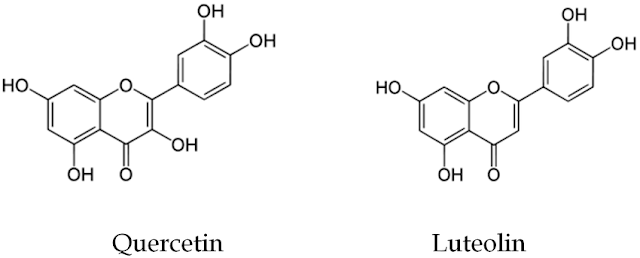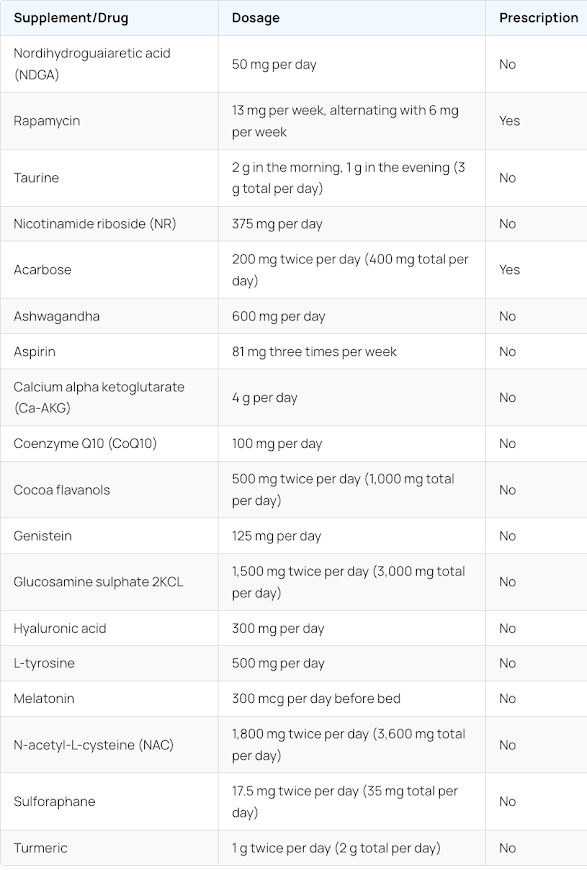Luteolin vs Quercetin: What's the Difference?
Luteolin vs Quercetin
Similarity
- Both are Flavonoids: Luteolin and quercetin are flavonoids, a type of plant compounds known for their antioxidant properties. Fruits, vegetables, and herbs contain a wide range of flavonoids.
- Antioxidant Powers: Both luteolin and quercetin are powerful antioxidants, which means they can neutralize damaging free radicals in the body. This antioxidative activity protects cells from the damage induced by oxidative stress, which is linked to a variety of chronic diseases and aging processes.
- Anti-Inflammatory Abilities: Multiple studies have shown that both compounds have anti-inflammatory properties. They can prevent the production of pro-inflammatory substances and control inflammatory pathways, potentially lowering inflammation and tissue damage.
- Found in Nature: You can find luteolin and quercetin hanging out in lots of plants, like fruits, veggies, herbs, and even in drinks like tea and red wine. Eating these foods gives us a natural dose of these superhero flavonoids.
Differences
- Chemical Structure: Luteolin and quercetin have similar structures, with minor differences. Both have a flavone backbone, but luteolin has hydroxyl groups at 3' and 4' on its B ring, whereas quercetin has hydroxyl groups at 3', 4', and 5'. These structural changes can have an impact on their biological activity.
- Sources: Luteolin likes to hang out in foods like parsley, celery, thyme, peppers, and carrots. Meanwhile, quercetin is more of an apple, onion, citrus fruits, red wine, and tea kind of flavonoid.
- Biological Actions: Both luteolin and quercetin have antioxidant, anti-inflammatory, and anticancer effects. However, other research indicate that luteolin may have better anti-inflammatory benefits than quercetin. Quercetin, on the other hand, has received increased attention due to its possible cardiovascular benefits, such as its capacity to lower blood pressure and lower the risk of heart disease.
- Absorption: Quercetin may be easier for our bodies to absorb compared to luteolin. This means our bodies can use quercetin more effectively, even though both can be a bit tricky to absorb fully.
Who Should Avoid Taking CoQ10?
CoQ10 has possible interaction with anticoagulants. CoQ10 may reduce the effectiveness of blood-thinning medications like warfarin (Jantoven). This could increase the risk of a blood clot.
Who Should Avoid Taking Luteolin?
Luteolin is generally safe for most people when consumed through food. However, individuals with allergies to foods rich in luteolin should avoid supplements. Pregnant and breastfeeding women, children, and those with certain medical conditions should also consult a healthcare provider before taking luteolin supplements due to limited research on safety and potential interactions with medications.
Best Quercetin Supplements
a. Quercetin – Amazing Formulas Quercetin
b. Quercetin with Bromelain – Now Foods Quercetin with Bromelain
Now Foods Quercetin supplements contain Bromelain, as some evidence suggests they boost absorption.
c. Quercetin with Vitamin C and Zinc – Supplements Studio - Quercetin with Bromelain Vitamin C and Zinc
Contains Quercetin 500mg + 175mg of an Organic Whole Food Quercetin Blend (sourced from raw fruits and veggies) + 15mg of Zinc Picolinate + 200mg of Bromelain from Pineapple + 100mg of Organic Ginger Root + 125mg of Vitamin C from Organic Acerola Cherries + 100mg of Citrus Bioflavonoids from Organic Orange & Organic Lemon.
d. Quercetin with Bromelain and Vitamin C – ForestLeaf Quercetin with Bromelain + Vitamin C
Quercetin with Bromelain, Stinging Nettle and Vitamiin C may help with sinus relief, allergies, cardiovascular and respiratory health.
b. Quercetin with Bromelain – Now Foods Quercetin with Bromelain
Now Foods Quercetin supplements contain Bromelain, as some evidence suggests they boost absorption.
c. Quercetin with Vitamin C and Zinc – Supplements Studio - Quercetin with Bromelain Vitamin C and Zinc
Contains Quercetin 500mg + 175mg of an Organic Whole Food Quercetin Blend (sourced from raw fruits and veggies) + 15mg of Zinc Picolinate + 200mg of Bromelain from Pineapple + 100mg of Organic Ginger Root + 125mg of Vitamin C from Organic Acerola Cherries + 100mg of Citrus Bioflavonoids from Organic Orange & Organic Lemon.
d. Quercetin with Bromelain and Vitamin C – ForestLeaf Quercetin with Bromelain + Vitamin C
Quercetin with Bromelain, Stinging Nettle and Vitamiin C may help with sinus relief, allergies, cardiovascular and respiratory health.
Best Luteolin Supplements
a. Luteolin - Double Wood Supplements Luteolin Supplement 100mg
b. Luteolin Complex with Rutin - Horbäach Luteolin Complex with Rutin
Premium blend of plant flavonoids, supplying 50 mg each of Luteolin and Rutin. Vegetarian formula, Naturally free of gluten, wheat, yeast, lactose, soy, articial flavor preservatives and Non GMO
c. Luteolin Complex with Rutin Powder - Lutimax Luteolin Complex Powder with Rutin
Our luteolin complex powder contains natural ingredients including luteolin, a common flavonoid from many types of plants including fruits, vegetables, and herbs and rutin, a bioflavonoid that boosts the potency of luteolin that helps you absorb nutrients quickly.
FAQ
a. Ubiquinone Vs Ubiquinol
The main differences between ubiquinol and ubiquinone is that ubiquinol is the reduced form of CoQ10, whereas ubiquinone is the oxidized form. Therefore, ubiquinone has more electrons than ubiquinol.
Ubiquinone = oxidized CoQ10 = yellow
Ubiquinol = reduced CoQ10 = white
Ubiquinol = reduced CoQ10 = white
In contrast to ubiquinone, which has a characteristic yellowish color, ubiquinol is essentially white. As soon as ubiquinol is exposed to oxygen, it transforms back into ubiquinone, which is its oxidized (and yellow) form.
You May Be Interested In...










Comments